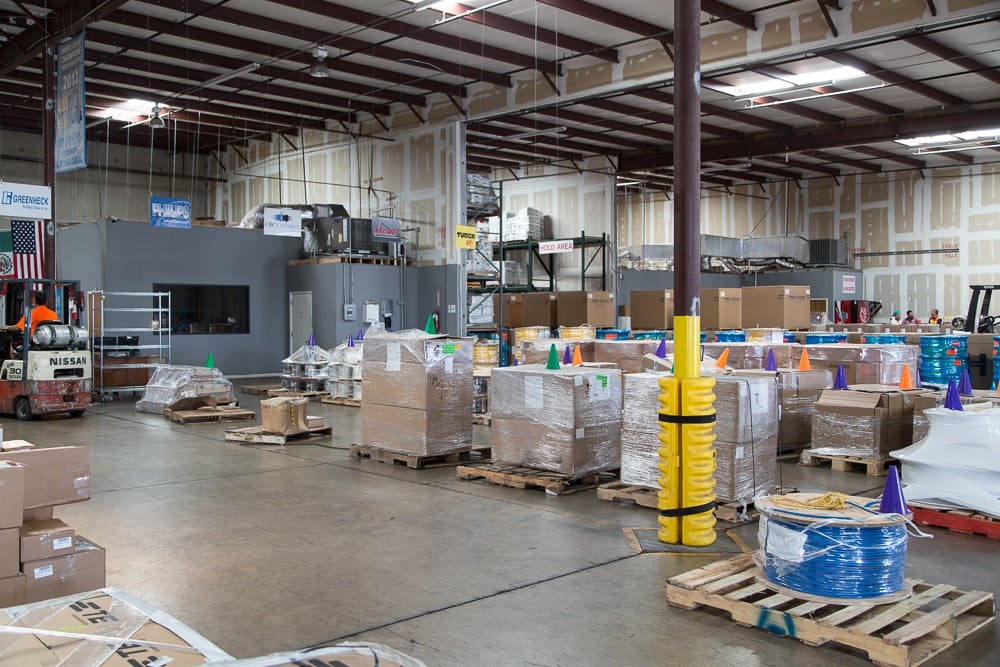For many companies, maintaining production in their country of operation is simply no longer practical for a number of reasons. As a result, companies will often opt to move production offshore, allowing them to save money and increase their pool of potential employees. Some of these companies include IBM, Ford, General Electric, and JP Morgan.
In the simplest terms, offshoring refers to the relocation of part of a company's business process to another, typically foreign, location. This offshored process will usually be for the manufacturing production of goods and products. A team is then created to run this section, acting as a subsidiary, while the main company retains complete ownership over the operation.
In some cases, a company will also hire third-party offshore specialists who provide the entire infrastructure, facilities, and team, which saves the company from needing to completely develop their own process from scratch. Either way, offshore production is also beneficial to the host country, as was witnessed by the unprecedented growth of Mexico’s GDP since a trade agreement encouraged offshore production between the USA and Mexico.
Mexico's infrastructure for offshoring is a comprehensive network that includes state-of-the-art industrial parks, extensive transportation systems with over a hundred airports, numerous deep-water ports on both the Pacific and Atlantic coasts, and a vast network of highways and railroads facilitating seamless logistics and supply chain operations. This well-developed infrastructure not only ensures efficient production and distribution processes for offshored businesses but also significantly reduces lead times and costs associated with shipping and logistics.
When it comes to leveraging offshore specialists for efficient and cost-effective operations, Tetakawi emerges as the optimal choice for companies seeking to streamline their production processes. Tetakawi offers a comprehensive suite of services tailored to meet the unique needs of businesses looking to offshore their operations.
As a seasoned offshore specialist, Tetakawi provides end-to-end support, from setting up infrastructure and facilities to recruiting and managing skilled teams. By partnering with Tetakawi, companies can benefit from its extensive experience in navigating the complexities of offshoring, ensuring seamless integration and compliance with local regulations.
With Tetakawi as a trusted partner, businesses can focus on their core competencies while enjoying the advantages of offshoring without the hassle and overhead costs typically associated with establishing offshore operations independently.
Why Do Companies Offshore?
There are a number of reasons why companies may choose to offshore their business processes. The exact motivations will vary from business to business.
-
Skill Shortage
According to research, the majority of American companies that offshore processes do so because of a shortage of local employees with the required skills. As a rule, the offshore businesses will have a large pool of workers, rich in relevant work experience and skills, to choose from. This is particularly true in the case of offshore manufacturing.
-
Cost Savings
Moving offshore also offers the chance to make significant savings; according to experts, companies can save up to 80% in cost savings, largely by saving on operational expenses, benefits and salaries. In some cases, factories may also choose offshore production, allowing them to enjoy low cost manufacturing. They will typically offshore to emerging markets, which offer reduced costs in setting up manufacturing facilities, in utilities, and labor.
-
Efficient Quality And Process
In many cases, the countries and regions manufacturers choose for their offshore locations are experienced in the process; they are efficient and fast and can set up systems that conform to standard procedures and local laws, with the ease of experience.
As an example, any process which requires mass production on a large scale might be outsourced to Southeast Asian countries such as the Philippines, as teams here have a strong background in completing tasks that demand accuracy and precision quickly and effectively. The Mexican manufacturing industry is also a draw for some types of production, such as the automobile industry.
-
Time Zone Coverage
One of the major advantages of offshoring is to allow companies to cover a wide range of time zones. Combining home and offshore production means that businesses are more likely to be able to offer 24/7 operations. This is especially true in places such as the Philippines, where workers are more used to working outside the 9-5 time slot and may be happy to take on a range of shifts and working hours.
Operating in a range of time zones also means that any tasks not completed by the end of a typical day can be turned over to facilities that are still operating, allowing a continuous workflow to speed up the completion of a project.
Which Companies Offshore To Other Countries?
A number of companies based in the USA have seen the benefits offered by offshoring; these range from small setups to large multinationals, as well as everything in between. IT and tech are the industries most commonly offshoring production, but a range of other businesses have also taken advantage of the perks. These include:
-
IBM
While IBM is based in the US, there is also a subsidiary in India, known as IBM India Private Limited. It’s the largest multinational employer in India, with around 131,000 employees. Workers in India perform a wide variety of services, including software research and development, monitoring cloud-based computer systems for international clients, and the performance of consulting services.
-
Ford Motor Company
Ford operates all over the world, but they hold an IT enterprise based in India. This part of the company performs IT services, customer support - including phone, email and live chat support, and software development - designed to manage the global e-commerce network for the business.
-
JP Morgan Chase
JP Morgan Chase is another global operation. It has offices located in the Philippines to handle mortgage operations, IT services, financial processes, and call center operations.
-
General Electric
General Electric holds a development center in Bangalore, India. It’s responsible primarily for communication with the international branches of General Electric, as well as international partners, suppliers, and customers.
No two offshore setups are the same, but there is no denying the benefits offshore branches can provide to your organization. It can be a great way to boost profit and transform the workings of your business.
Subscribe
Sign up and stay informed with tips, updates, and best practices for manufacturing in Mexico.





